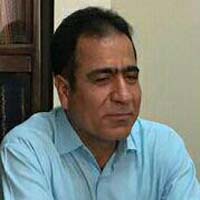Explanation of influence of the cognitive elements of philosophical research methods to improving the math problem solve training
Mathematical problem-solving training has been the focus of previous research. But there is a research gap on the impact of the cognitive elements of philosophical research on improving mathematical problem solving education.
To explain how cognitive elements of philosophical research can influence mathematical problem solving education.
This was a qualitative study. All texts containing the content of philosophical research as well as mathematical problem-solving instruction in the last two decades at home and abroad have been considered as discourses and in addition to the text of Polya and Schoenfield's books as the main and key works of mathematical problem-solving instruction. Sampling was done using the maximum diversity method to obtain all the usable codes. All found elements were coded and codes containing cognitive elements were extracted and analyzed. Data were analyzed using discourse analysis.
Philosophical research methods include the use of cognitive factors. A variety of thinking skills, conceptual reasoning, inference, use of abstract concepts, deep understanding of the problem and its conditions and response conditions, rearrangement and modification of problem terms and elements are common philosophical and mathematical problem solving methods.
Since cognitive skills can be learned and practiced, training and practicing them can improve mathematical problem solving training. Philosophical research, because of the widespread use of reasoning and the analysis of abstract concepts, has the potential to be used in the mathematics classroom.
-
A Philosophical Exploration of Dramaturgy as an Educational Approach: Examining Roles and Proposing Improvements for the Teacher Education System
Mohammad Faghedi *, Alireza Mahmmudnia, Ramazan Barkhordari, Yahya Ghaedy
Journal of Technology and Scholarship in Education, -
Designing the Elementary School Science Curriculum based on Bhaskar's Transcendental Realism
Yunes Amirahmadi *, Saeid Zarghami-Hamrah,
Journal of Theory and Practice in Curriculum,



